Last Updated on March 8, 2025
In an increasingly conscious society, embracing sustainable products has become more than a trend; it is a responsibility. While certain eco-friendly things are well-known, such as reusable bags and metal straws, many new products are meant to help us minimize our carbon impact. We have assembled the “8 Sustainable Products You Didn’t Know You Needed” to suggest which products to buy. From personal care to household necessities, these are eight sustainable things you didn’t realize you needed. It would be best to start incorporating climate-pledge-friendly products into your daily routine, like bamboo toothbrushes and reusable silicone bags, to help you live sustainably while reducing your environmental impact.
- Recommended Gift Guides
- Here are 8 Sustainable Products
- 1) Bamboo Toothbrushes: A Green Alternative for Oral Care
- 2) Beeswax Wraps: The Reusable Food Storage Solution
- 3) Eco-Friendly Cleaning Products: Clean Homes, Clean Conscience
- 4) Reusable Silicone Bags: Say Goodbye to Single-use Plastics
- 5) Solar-Powered Chargers: Harnessing the Sun's Energy
- 6) Compostable Phone Cases: Protect Your Device and the Planet
- 7) Water-Saving Showerheads: Conserve Water Without Sacrificing Comfort
- 8) Sustainable Fashion: Wear Your Values
Recommended Gift Guides
Here are 8 Sustainable Products
1) Bamboo Toothbrushes: A Green Alternative for Oral Care
Plastic toothbrushes are ordinary in bathrooms worldwide, yet few people consider how they affect the environment. An estimated 1 billion plastic toothbrushes are abandoned annually in the United States alone, considerably adding to plastic pollution.
Why Bamboo?
Bamboo toothbrushes provide a sustainable option. Bamboo is one of the planet’s fastest-growing plants, making it a highly renewable resource. Unlike plastic, bamboo is biodegradable and compostable, so your toothbrush will not sit in a landfill for decades. Furthermore, bamboo has natural antibacterial characteristics, making it a sanitary option for dental care. Using eco-friendly products, such as bamboo toothbrushes and reusable silicone bags, allows you to make sustainable choices that positively impact our environment.
Choosing the Right Brush
When selecting a bamboo toothbrush, choose one with plant-based brushes. While most bamboo toothbrushes still have nylon bristles, several manufacturers provide biodegradable versions derived from castor bean oil. Look for toothbrushes packaged in recyclable or compostable materials to lessen the environmental impact further.
Check out these toothbrushes, made from sustainable bamboo and in biodegradable packaging. The bristles are BPA-free, making them a healthier choice for your daily oral care routine.
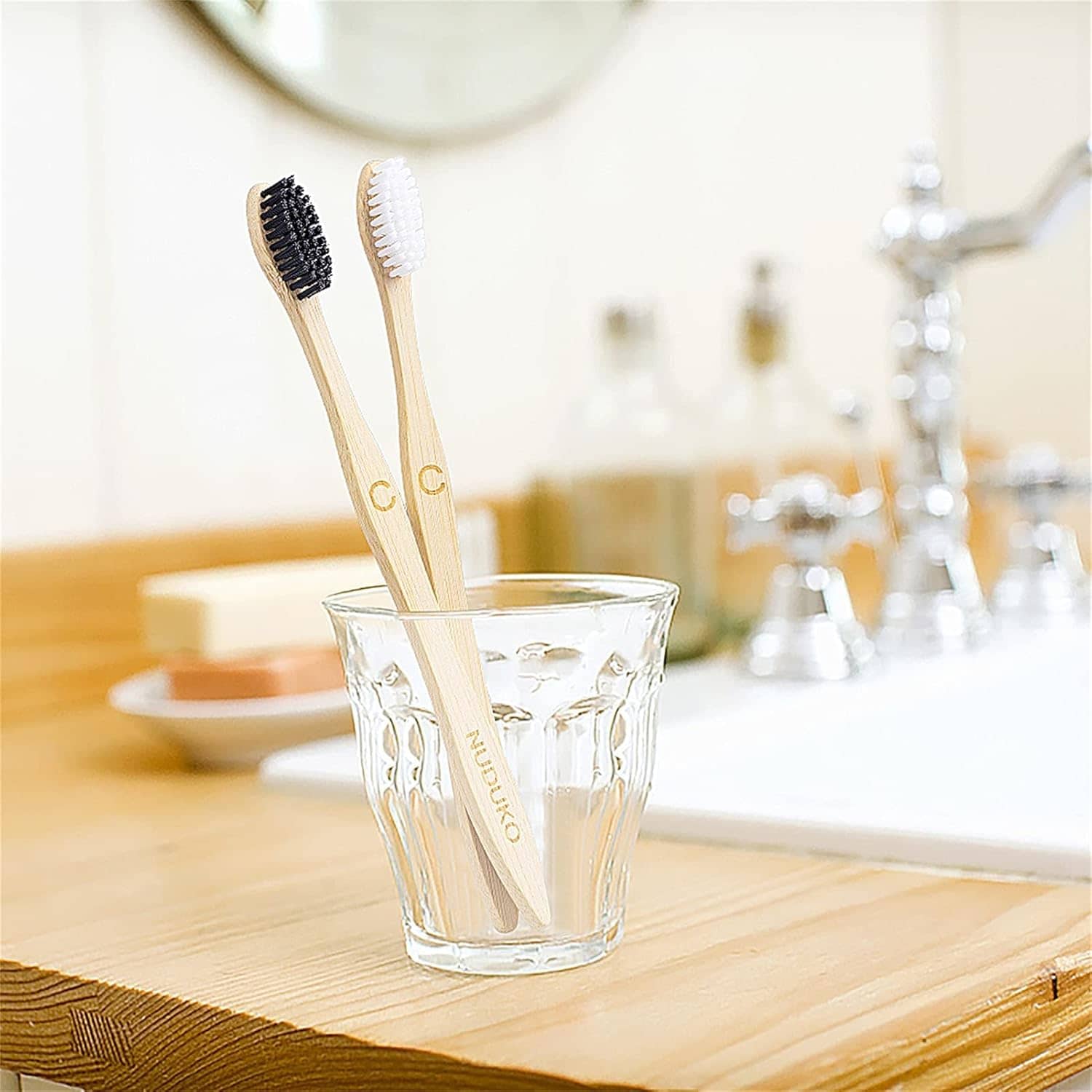
2) Beeswax Wraps: The Reusable Food Storage Solution
Plastic wrap is convenient yet notoriously wasteful, adding to the millions of tons of plastic waste produced annually. Beeswax wraps are a natural, reusable option ideal for food storage.
How They Work
Beeswax wraps are made from cotton fabric infused with beeswax, tree resin, and jojoba oil. These ingredients create a flexible, sticky coating that adheres to the surface of bowls, plates, or directly onto food items, effectively sealing them without plastic. The wraps can be washed in cold water and reused for up to a year.
Eco-Friendly Benefits
Beeswax wraps reduce plastic waste and are biodegradable and eco-friendly. At the end of their life cycle, they can be composted or repurposed as fire starters. They also help keep food fresh for longer by allowing it to breathe, reducing food waste.
The below set of beeswax wraps comes in different sizes. They are perfect for wrapping sandwiches, covering bowls, or storing leftovers. They are reusable, washable, and biodegradable.

3) Eco-Friendly Cleaning Products: Clean Homes, Clean Conscience
Traditional cleaning products often contain harsh chemicals that can harm the environment and your health. These chemicals contribute to water pollution and can cause respiratory issues, skin irritation, and other health problems.
Sustainable Alternatives
On the other hand, eco-friendly cleaning products use natural ingredients such as vinegar, baking soda, and essential oils. These products are non-toxic, biodegradable, and often come in recyclable packaging. Some companies even offer refill stations or bulk options to minimize waste further.
DIY Cleaning Solutions
For those who prefer a hands-on approach, making your cleaning products is a simple and cost-effective way to go green. Common ingredients like lemon juice, vinegar, and baking soda can create robust cleaning solutions for various household tasks. I recommend Mrs. Meyer’s Clean Day Multi-Surface Cleaner. Made with plant-derived ingredients and essential oils, Mrs. Meyer’s cleaning products are free from harsh chemicals and come in recyclable packaging.
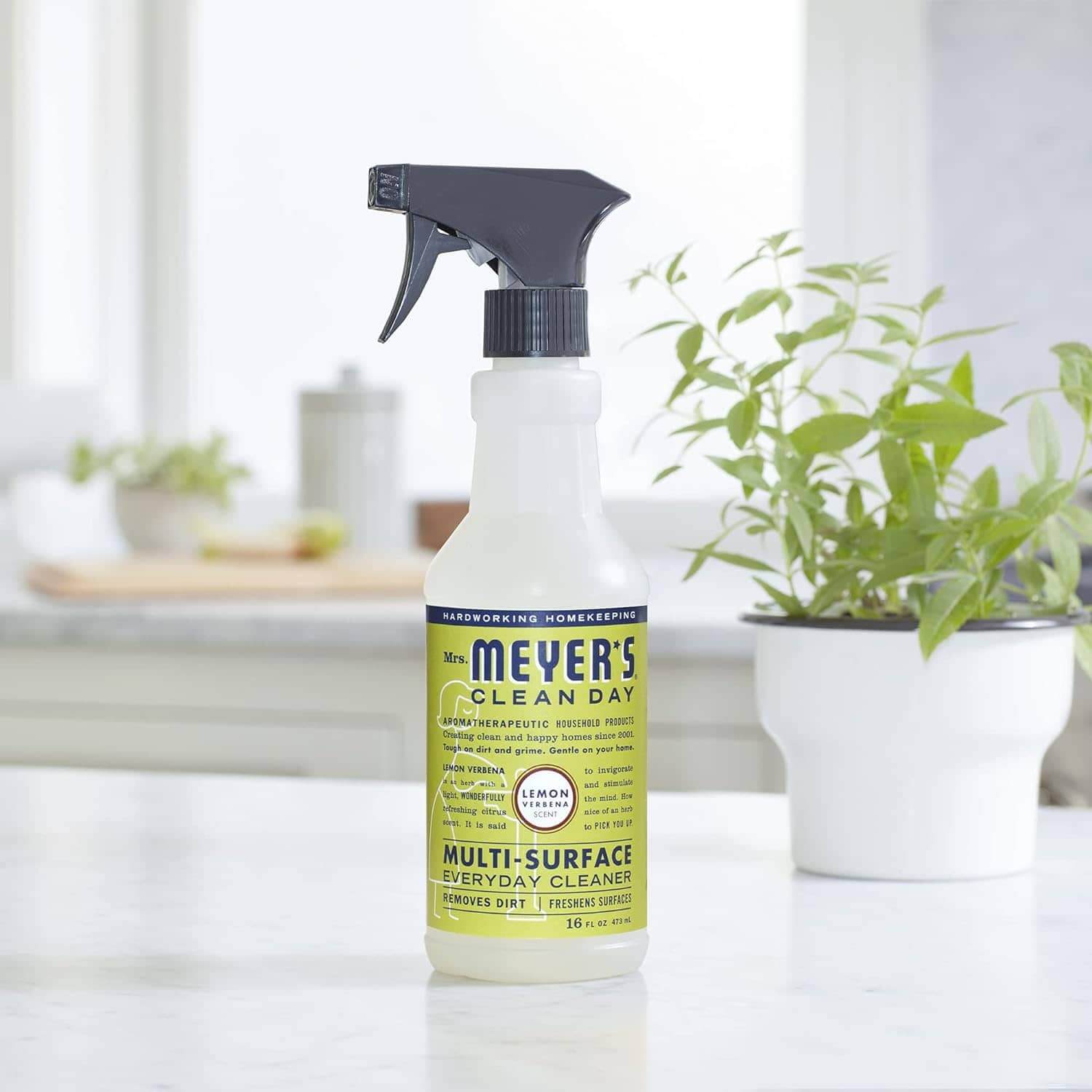
4) Reusable Silicone Bags: Say Goodbye to Single-use Plastics
Single-use plastic bags are a primary environmental concern, with billions in landfills or oceans yearly. Reusable silicone bags offer a durable, versatile alternative.
The Benefits of Silicone
Unlike plastic, silicone is a non-toxic material that doesn’t leach harmful chemicals into food. It’s also incredibly durable and heat-resistant, making it suitable for microwave, freezer, and dishwasher use. Reusable silicone bags come in various sizes and can be used for everything from storing leftovers to packing snacks.
Environmental Impact
You can significantly reduce plastic waste by replacing single-use plastic bags with reusable silicone ones. These bags can be used hundreds of times, and at the end of their life, they can be recycled, although not through typical curbside programs.
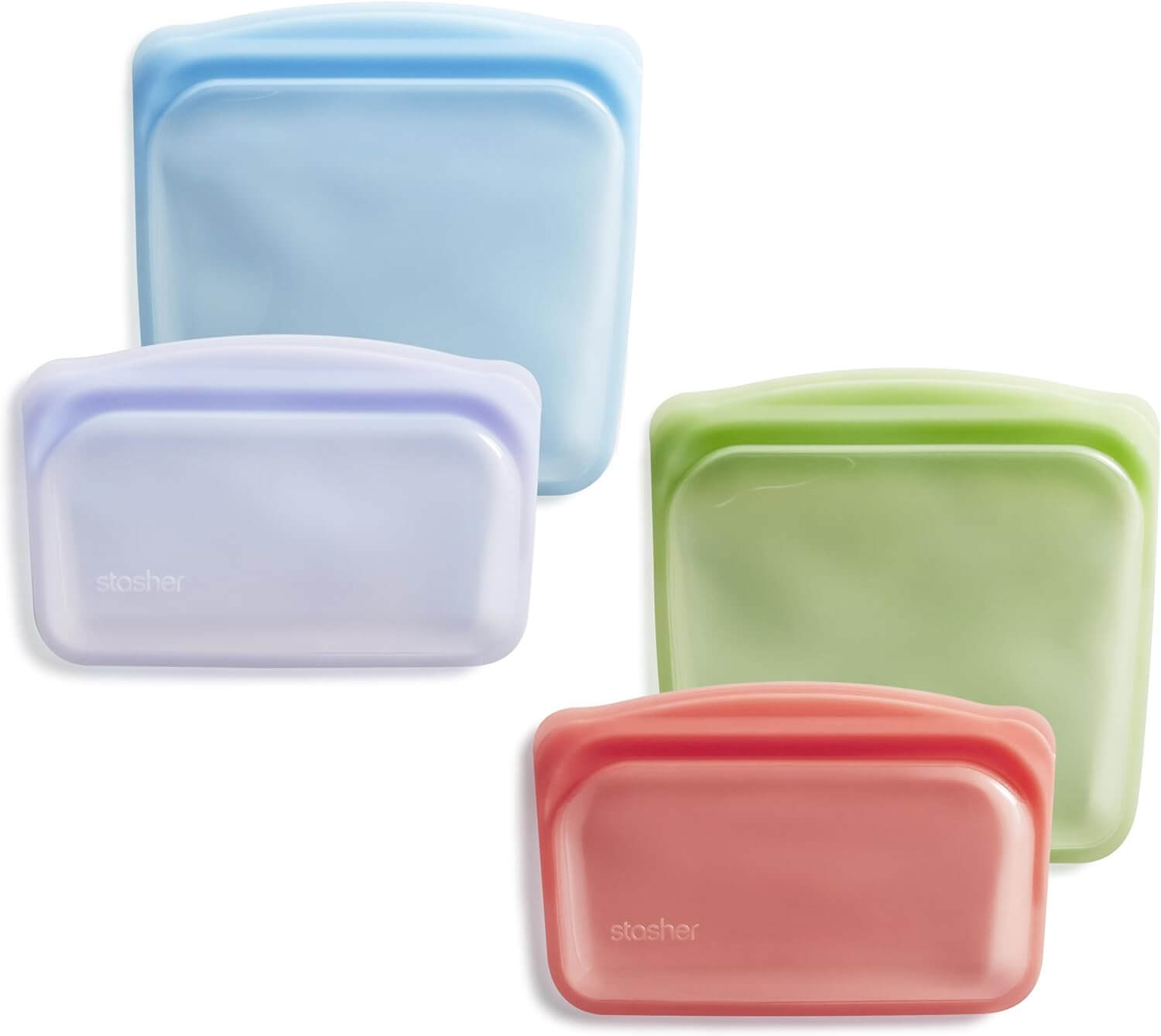
5) Solar-Powered Chargers: Harnessing the Sun’s Energy
As we rely more on electronic devices, our energy consumption increases. Solar-powered chargers provide a sustainable solution by harnessing the sun’s energy to power your gadgets.
How They Work
Solar chargers use photovoltaic cells to convert sunlight into electricity. They come in various forms, from small portable units ideal for phones and tablets to larger models that can power laptops and other devices. Solar chargers are handy for outdoor enthusiasts, travelers, or anyone looking to reduce their reliance on grid electricity.
Advantages of Solar Power
Solar chargers use renewable energy to reduce your carbon footprint. They’re also cost-effective in the long run, eliminating the need for disposable batteries and reducing electricity bills. Plus, they offer a reliable power source during emergencies or in areas without access to electricity.
The portable solar charger is perfect for outdoor activities or emergency use. It can charge two devices simultaneously and is compatible with various gadgets.
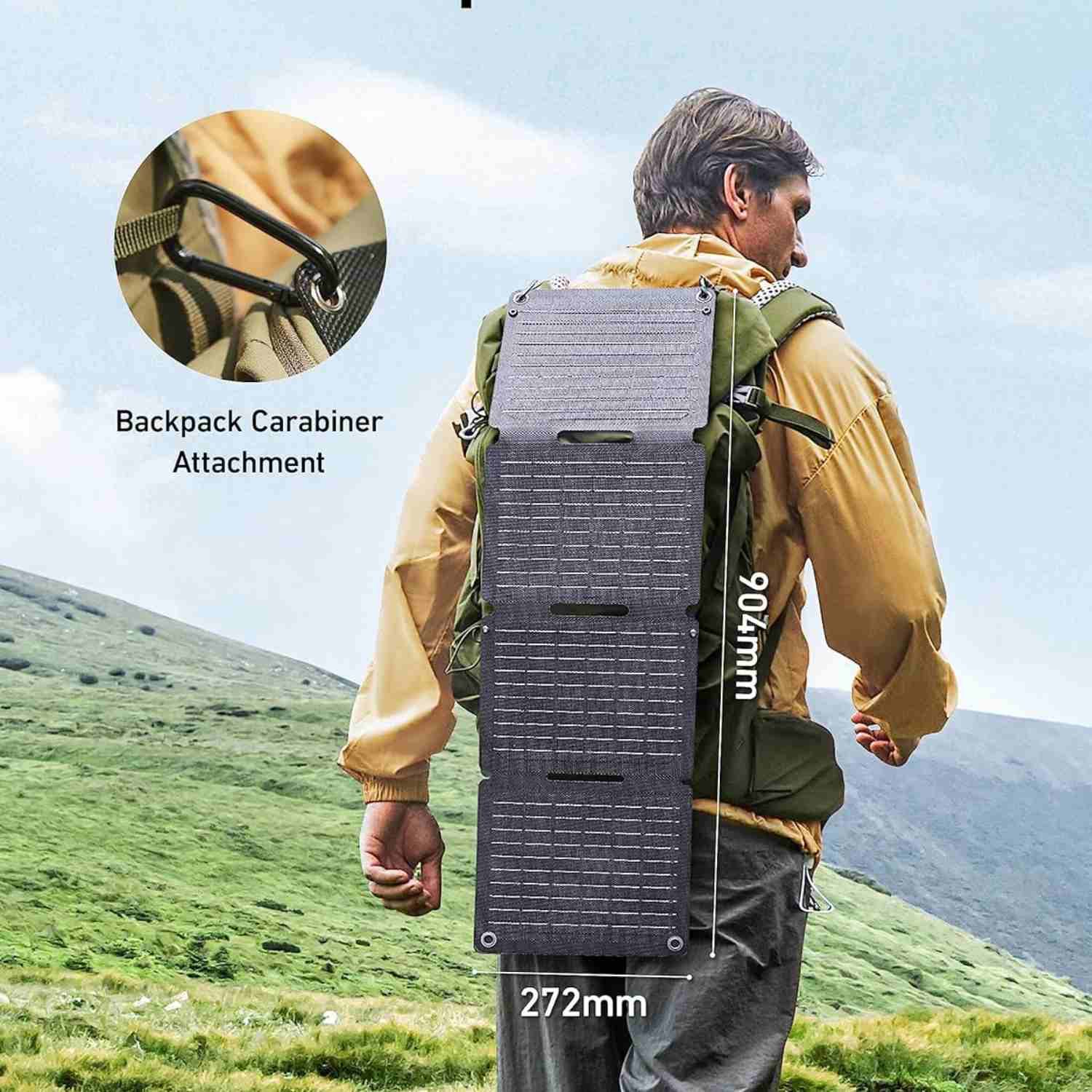
6) Compostable Phone Cases: Protect Your Device and the Planet
Phone cases are another everyday item that often goes unnoticed in discussions about sustainability. Most cases are made from plastic or synthetic materials that take hundreds of years to decompose.
The Compostable Alternative
Compostable phone cases are made from plant-based materials like flax straw or bioplastic derived from cornstarch. These materials are designed to break down naturally in compost conditions, reducing the environmental impact of your phone case.
Why Make the Switch?
By choosing a compostable phone case, you’re reducing the demand for petroleum-based plastics and supporting the development of sustainable materials. When your case has served its purpose, you can toss it in your compost bin, knowing it will return to the earth rather than contribute to landfill waste.
Check out the Pela cases, made from flax straw waste and 100% compostable. They offer stylish protection for your phone while being gentle on the planet.
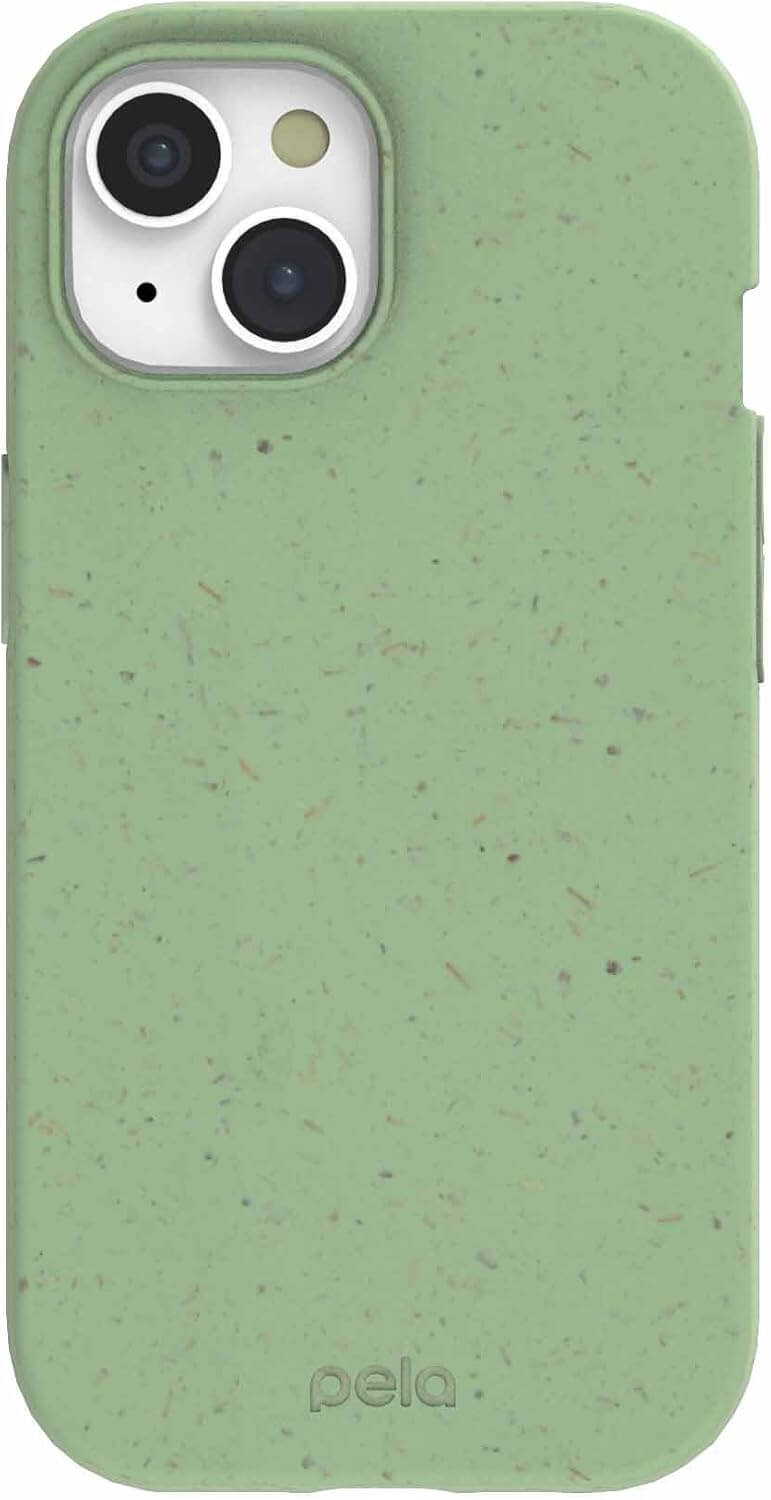
7) Water-Saving Showerheads: Conserve Water Without Sacrificing Comfort
Water is one of our most precious resources, yet traditional showerheads can use up to 2.5 gallons of water per minute. With growing concerns about water scarcity, switching to a water-saving showerhead is a small change that can make a big difference.
How They Work
Water-saving showerheads are designed to reduce water flow while maintaining pressure, allowing you to enjoy a satisfying shower experience. Many models use aerating technology, which mixes air with water to create a more voluminous spray while using less water.
Benefits Beyond Conservation
In addition to conserving water, these showerheads can help lower your energy bills by reducing the amount of hot water used. Over time, the savings on water and energy can add up, making this a cost-effective, eco-friendly switch.
This showerhead uses 40% less water than standard models without compromising on pressure, helping you conserve water while still enjoying a satisfying shower.
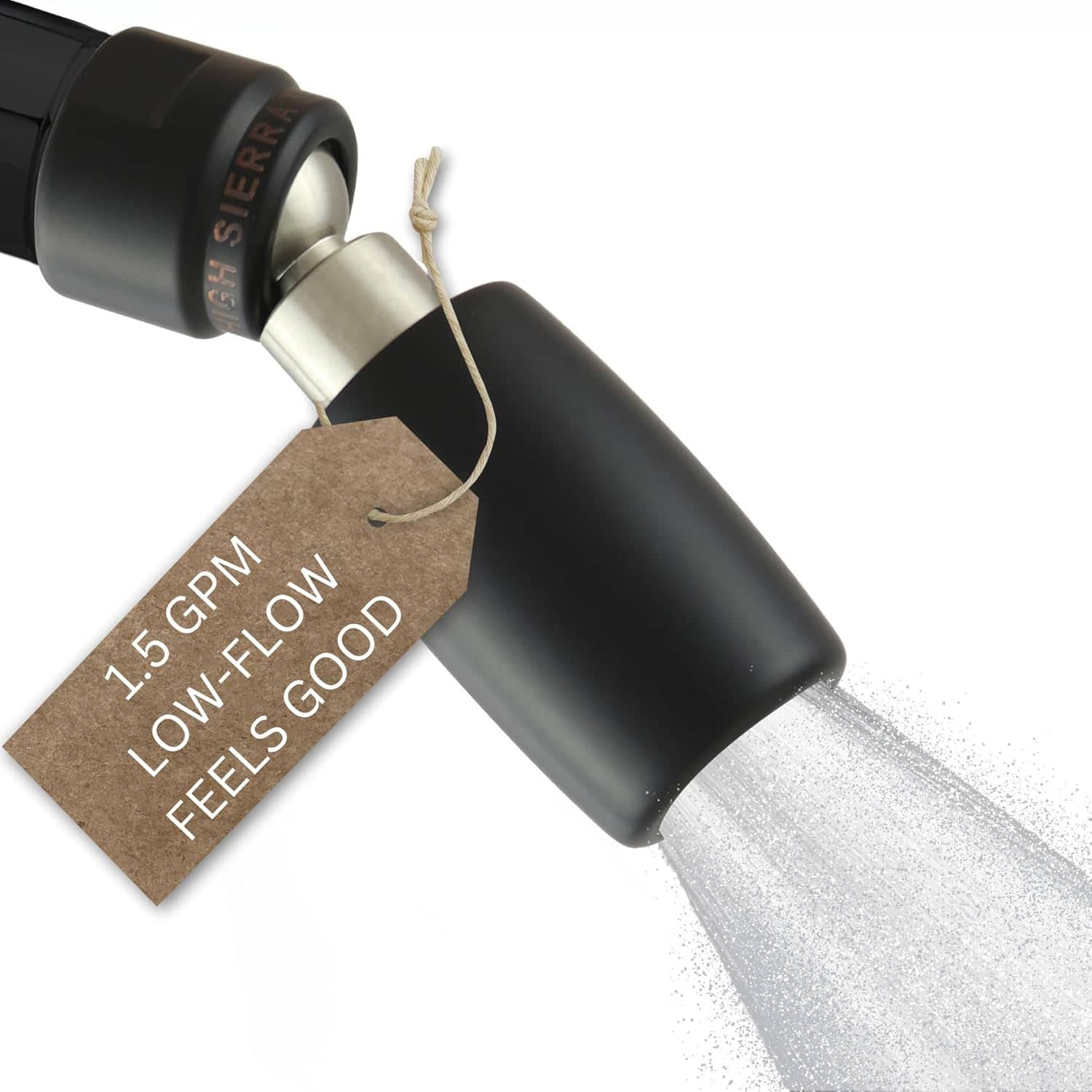
8) Sustainable Fashion: Wear Your Values
The fashion industry is notorious for its environmental impact. Fast fashion contributes to pollution, waste, and the depletion of natural resources. However, sustainable fashion is gaining traction as more consumers seek clothing that aligns with their values.
What Is Sustainable Fashion?
Sustainable fashion refers to clothing, shoes, and accessories produced in environmentally and socially responsible ways. This includes using organic or recycled materials, reducing waste in the production process, and ensuring fair labor practices. Brands committed to sustainability often use eco-friendly dyes, minimize water usage, and package their products in recycled or compostable materials.
Choosing Sustainable & Eco-friendly Brands
When shopping for sustainable fashion, look for certifications like Fair Trade, GOTS (Global Organic Textile Standard), or B Corp, which indicate a commitment to ethical and eco-friendly practices. You can also support the circular economy by buying second-hand or upcycled clothing, which reduces demand for new resources and keeps items out of landfills.
Visit the Pact store on Amazon. It offers 100% organic cotton clothing, which ensures a soft feel and sustainable production practices. The items are also Fair Trade Certified, which promotes ethical labor practices.
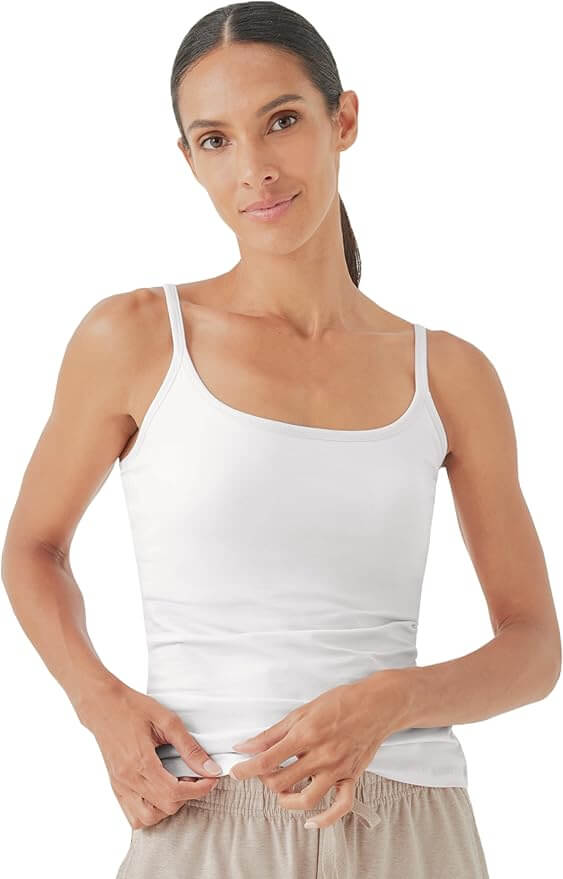
Finally
Incorporating eco-friendly products into your daily routine is a powerful way to reduce environmental impact. From bamboo toothbrushes and beeswax wraps to solar-powered chargers and sustainable fashion, these innovative products help you live a greener lifestyle without sacrificing convenience or style. By making small, conscious choices, you can contribute to a healthier planet and inspire others to do the same.
FAQs on sustainable products and climate pledge-friendly
- What makes a product eco-friendly? Eco-friendly products are those designed to minimize their environmental impact. This includes using sustainable materials, reducing waste and energy consumption during production, and ensuring the product can be recycled, composted, or otherwise disposed of in an environmentally responsible way.
- Are bamboo toothbrushes better for the environment? Bamboo toothbrushes are more sustainable than plastic because bamboo is a renewable and biodegradable resource. While the bristles are often made from nylon, they have a much lower overall environmental impact.
- How do beeswax wraps compare to plastic wrap? Beeswax wraps are a reusable alternative to plastic wraps. They’re made from natural materials, can be used multiple times, and are biodegradable, making them a far more sustainable option for food storage.
- Are eco-friendly cleaning products as effective as conventional ones? Yes, eco-friendly cleaning products can be just as effective as traditional cleaners. They use natural ingredients that are safe for the environment and human health, without the harmful chemicals in conventional cleaning products.
- Can solar-powered chargers work on cloudy days? Solar-powered chargers are most efficient in direct sunlight, but many models can still generate some power on overcast days. However, charging times may be longer, and the energy output may be lower in less-than-ideal conditions.
- How do I know if a fashion brand is genuinely sustainable? Look for certifications such as Fair Trade, GOTS, or B Corp, which indicate a brand’s commitment to ethical and environmental practices. Research the brand’s materials, production processes, and labor practices to ensure they align with sustainable principles.


